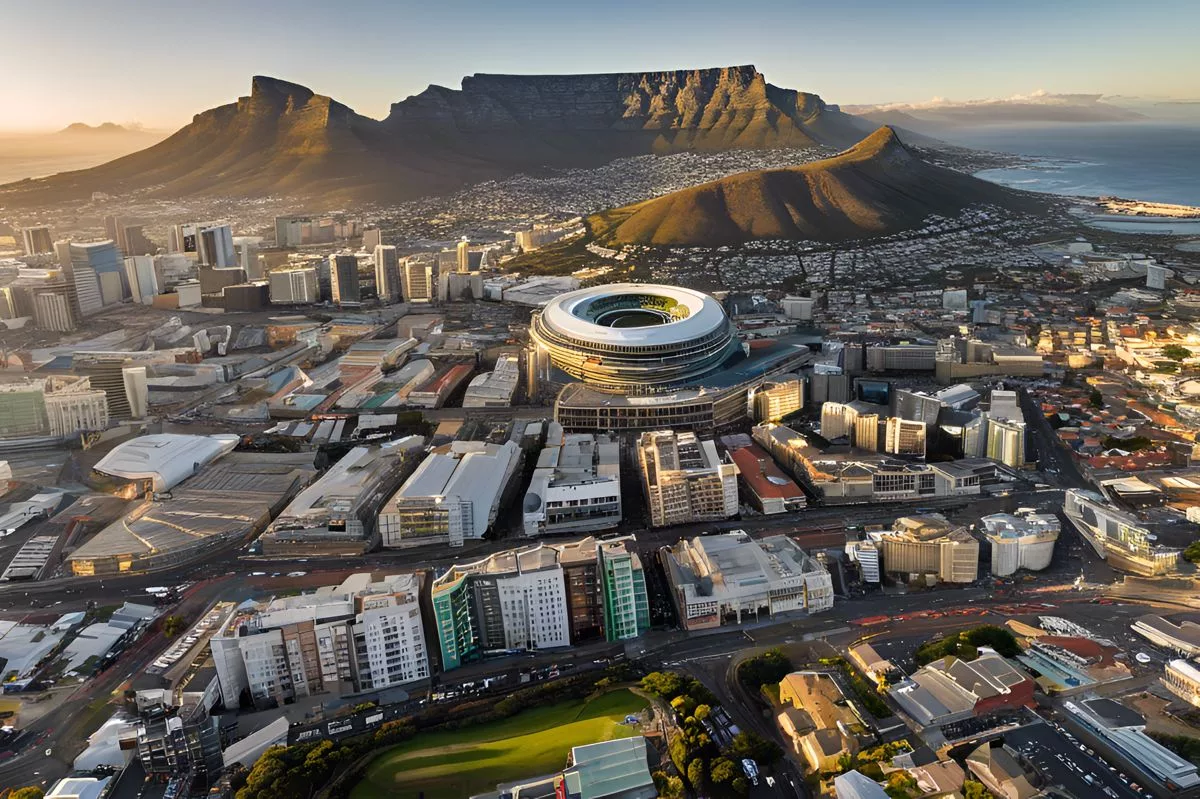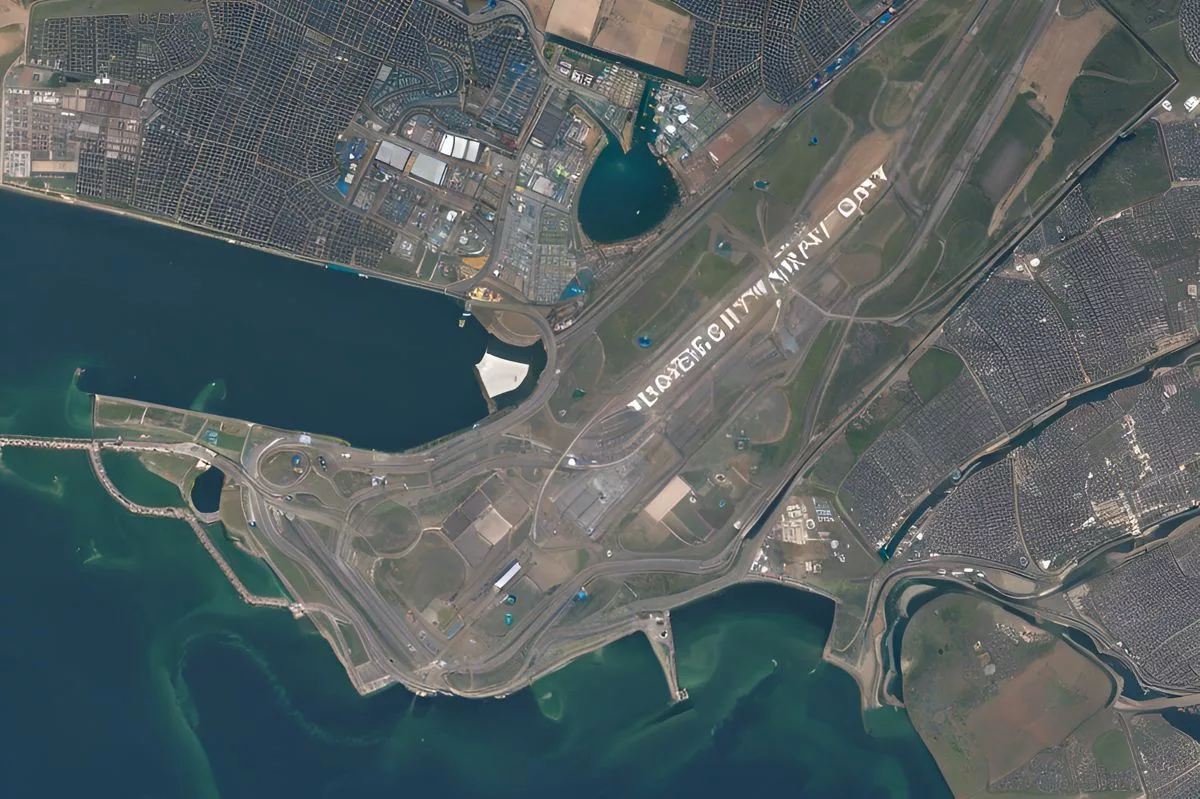Cape Town is predicted to become Africa’s wealthiest city by 2030, according to the African Wealth Report. Driven by internal migration of high-net-worth individuals and an influx of retirees, the city is already home to the second-highest number of millionaires in Africa, and its picturesque landscapes and attractive suburbs make it a center for wealth in the region. Corporate giants are also planning to move their offices to Cape Town in the upcoming decade, contributing to its economic expansion.
Is Cape Town becoming Africa’s future wealth epicenter?
Yes, according to the African Wealth Report of 2024, Cape Town is predicted to become the wealthiest city in Africa by 2030, driven by internal migration of high-net-worth individuals, an influx of retirees, and the relocation of corporate giants. Cape Town is already home to the second-highest number of millionaires in Africa, and its attractive suburbs and picturesque landscapes make it a center for wealth in the region.
Cape Town’s Forthcoming Affluence
Situated at the lowermost point of the African continent, Cape Town is predicted to rise to the pinnacle of African wealth by 2030. This forecasted economic growth is indicated by the African Wealth Report of 2024, an all-inclusive examination produced by Henley & Partners in collaboration with New World Wealth.
The city’s escalating wealth can be attributed to a phenomenon known as ‘semigration’. This term describes the internal transfer of well-heeled individuals from other South African cities to Cape Town, primarily from Johannesburg and Pretoria. Coupled with an influx of retirees from Europe and other African locations, these factors are paving the way for Cape Town’s prosperous future.
Cape Town’s appeal is not merely restricted to its picturesque landscapes and active lifestyle. The city’s suburbs, rich in lifestyle estates, are progressively attracting high-net-worth individuals (HNWIs) – a term used to identify individuals who possess a wealth of over US$1 million, equivalent to approximately R19 million.
Shifting Corporate Power
In the business sphere, predictions anticipate a power transition with numerous principal companies, currently headquartered in Johannesburg, planning to move their main offices to Cape Town in the upcoming decade. This transfer of corporate giants is bound to contribute significantly to the city’s economic expansion.
Interestingly, Cape Town is already a residence to the second-highest number of millionaires in Africa, second only to Johannesburg. Out of the total 37,400 HNWIs in South Africa, 7,400 reside in Cape Town, with Johannesburg leading the tally with 12,300.
Cape Town’s most affluent neighborhoods, often referred to as the ‘Prime 7’, features these wealthy inhabitants. The list includes Clifton, Bantry Bay, Camps Bay, Bishopscourt, Constantia, Llandudno, and St. James. An additional 3,600 HNWIs have chosen to live in the attractive Cape Winelands, enticed by high-end lifestyle estates like Val de Vie, De Zalze, and Domaine des Anges.
Beyond Residential Attraction
The Cape Winelands do not merely serve as a residential haven. The region is also a popular choice for vineyard ownership among HNWIs. Even ultra-wealthy centi-millionaires, those whose net worth exceeds $100 million or around R1.9 billion, are drawn to this region, often selecting it as their retirement destination.
The list of South African cities hosting HNWIs is extensive, encompassing Durban, Umhlanga, and Ballito, which are collectively home to 3,500 HNWIs. The picturesque Garden Route in the Western Cape, which houses 3,200 HNWIs, closely follows these cities. This scenic stretch from Mossel Bay to Storms River, featuring popular tourist destinations like Plettenberg Bay, Knysna, and Wilderness, is another wealth magnet. Beachy Head Drive, located in Plettenberg Bay, is even nicknamed ‘Africa’s Millionaire Row’.
The administrative capital, Pretoria, also boasts a sizeable HNWI population of 2,100. Its wealthy areas include Waterkloof and Waterkloof Ridge, and luxury estates like Silver Lakes, Mooikloof Equestrian Estate, and Woodhill Estate.
Cape Town’s Wealthy Future
As Cape Town continues its journey towards becoming the wealthiest city in Africa, it isn’t solely its impressive landscapes and the relaxed lifestyle that attracts wealth. The strategic location of the city, the corporate relocations and the luxurious lifestyle estates combine to form a powerful mix, positioning Cape Town as a center for wealth on the African continent.
1. What is the African Wealth Report of 2024?
The African Wealth Report of 2024 is a comprehensive examination produced by Henley & Partners in collaboration with New World Wealth that predicts Cape Town to become Africa’s wealthiest city by 2030.
2. What is semigration?
Semigration is the internal transfer of well-heeled individuals from other South African cities to Cape Town, primarily from Johannesburg and Pretoria. This, coupled with an influx of retirees from Europe and other African locations, is paving the way for Cape Town’s prosperous future.
3. Why are corporate giants planning to move their offices to Cape Town?
Corporate giants are planning to move their offices to Cape Town in the upcoming decade, contributing to its economic expansion due to the city’s strategic location, luxurious lifestyle estates, and attractive suburbs.
4. What are the wealthiest neighborhoods in Cape Town?
The wealthiest neighborhoods in Cape Town, often referred to as the ‘Prime 7,’ include Clifton, Bantry Bay, Camps Bay, Bishopscourt, Constantia, Llandudno, and St. James.
5. What are other areas in South Africa that attract HNWIs?
Other areas in South Africa that attract high-net-worth individuals (HNWIs) include the Garden Route, Durban, Umhlanga, Ballito, and Pretoria.
6. Why is the Cape Winelands a popular choice for HNWIs?
The Cape Winelands is a popular choice for HNWIs due to its high-end lifestyle estates, vineyard ownership opportunities, and as a retirement destination.












